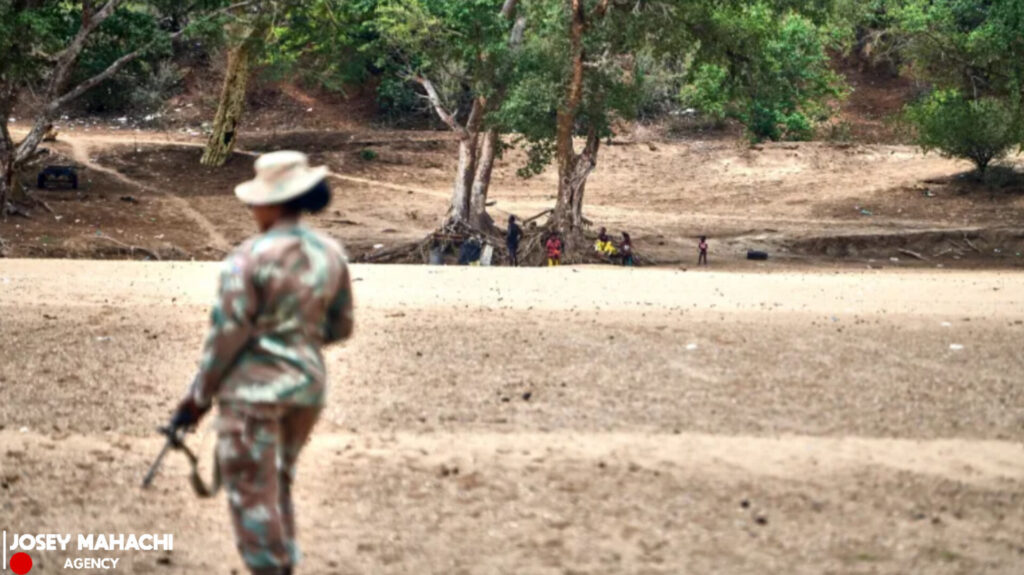By : Lloyd Mahachi
South Africa’s military has enhanced its border operations along the Limpopo River to curb smuggling and illegal crossings from Zimbabwe. The operation is part of the South African National Defence Force’s (SANDF) efforts to secure the country’s borders.
Fadzai Musindo, a 43-year-old mother of three, crosses the border daily to work as a “runner,” carrying goods into Zimbabwe for clients. She often takes the informal route, despite the risks, to avoid the challenges and expenses associated with using the formal Beitbridge border post.
Musindo’s decision to cross the border informally is not unique. Many Zimbabweans are forced to take this route due to their country’s ailing economy and scarcity of certain items. The job of a runner has become popular, but it comes with significant risks, including the danger of being raped or robbed.
The crossing is technically illegal, and the SANDF has increased its presence along the border to prevent such activities. However, the goma-gomas, young men who smuggle people across the border, have found ways to evade the authorities. They promise to safely transport people across the crocodile-infested Limpopo River.
The SANDF’s Operation Corona, launched in September, aims to curb illegal activities along the border. The operation has resulted in fewer undocumented travelers crossing into South Africa, but smuggled goods remain a significant problem.
Despite the risks, many Zimbabweans continue to cross into South Africa. The South African Border Management Authority (BMA) has deported and arrested over 410,000 people since its establishment in April 2023. However, experts warn that the fast-track removals of irregular migrants could create more problems, including family separation and increased distress.
The BMA’s mandate is to ensure people move out of South Africa quickly, but this can lead to migrants being deported without access to social workers or lawyers. As a result, families are often separated, causing more distress.
The Zimbabwean government has also launched a crackdown on smugglers and illicit goods. A task force, including the Zimbabwe Revenue Authority (ZIMRA), immigration, and the police, searches all vehicles crossing the border. Anyone unable to account for their goods faces confiscation and penalties.
The Beitbridge border, one of Africa’s busiest, sees over 13,000 travelers and more than 400 buses crossing daily. The operation has caused lengthy delays, frustrating those traveling for the festive season.
For Musindo, the border operation has meant further delays to her work as a runner. She can wait for over five hours in the queue at the border post, earning less money as more time is spent waiting. Despite the risks, Musindo believes taking a chance to cross under the bridge is better than waiting in the long queues.
The SANDF’s increased presence along the border has not deterred migrants. Major Shihlangoma Mahlahlane, leading the joint technical operation for Operation Corona, acknowledges that the army cannot pursue those who run away. The river’s seasonal dryness and drought have made it easier for people to cross, but the onset of rains has not stopped them.
The South African government has promised to speed up deportations, but experts caution that this could create more problems. The issue is not solely at the border but also in the cities, where crime and inequality are pervasive.
Reducing irregular migration requires a multifaceted approach, including addressing the root causes of migration and providing sustainable solutions. The Scalabrini Center, a non-profit organization protecting migrants and refugee rights, emphasizes the need for a sustainable and multipronged approach to border management.
As the situation continues to unfold, one thing is clear: the issue of migration between Zimbabwe and South Africa is complex and multifaceted, requiring a comprehensive and sustainable solution.
Editor : Josephine Mahachi

